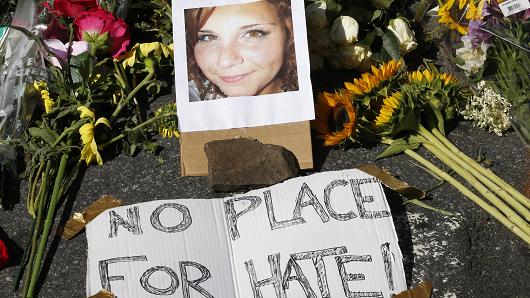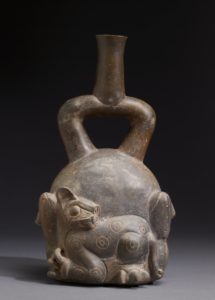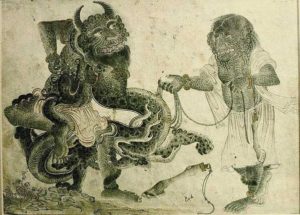
A peaceful transition of power?
Hell, no!
Normalizing the new presidential administration?
Hell, no!
That’s why I’m joining with thousands of writers across the country and around the world in the Writers Resist: #WriteOurDemocracy campaign. I believe we have truly reached a critical moment in U.S. history, and I know that expression gets overused, but this is what I mean.
The incoming president and vice president fought their way into office through the ugliest, most deceptive, most misogynistic, most anti-environment, anti-democratic, most fear-mongering, most-anti-press, most Islamophobic, and most racist campaign we have ever seen (I probably left something out there, so feel free to help fill in the blanks). Our incoming Republican congress has vowed to aggressively dismantle universal access to health care, turn back tax reform that promotes economic equality, criminalize women’s reproductive freedom, weaken voting rights and ethical accountability for elected officials, and reverse legal rights and protections for LGBTs. (I probably left some things out there as well).
So here’s the critical moment: we can call it a “popular mandate,” or “all’s fair in war and politics,” and fall back in a conference room to analyze what went wrong with the campaigns of fair-minded, progressive candidates in hopes of doing better in the midterm elections in two years. Or, we can raise our voices to decry the incendiary rhetoric, tactics and ideas of the present administration, and demand a better way, right now.
Here’s the statement of purpose from Write Our Democracy’s website:
Write Our Democracy is an initiative to gather writers in response to the growing public cynicism and the alarming disdain for truthfulness threatening to erode our most dearly held democratic principles. Originally launched as Writers Resist, the movement inspired nearly 100 worldwide events on January 15th, 2017, which mobilized writers and focused public attention on the ideals of a free, just, and compassionate democracy. These events will remain an important facet of our mission.
Our country was founded on brilliant writing. As writers, we have tremendous power to influence hearts and minds and impact policy. Together we can leverage that power in non-partisan, highly targeted ways to renew and amplify the core values of liberty, justice and respect that were written into the source code of our democracy.
Our nation was intended to evolve, not devolve. To best protect and defend against further erosion of social justice and democratic process, we believe there are three essential arenas in which writers can best exert influence and inspiration: we must elevate the narrative surrounding democracy; better educate young future citizens; and mobilize writers who want to put their pens into political practice.
Our democracy is at risk, but its renaissance is within our grasp. The founders of our nation conjured and codified their magnificent political experiment using the very same tool that every writer alive today uses in their craft — language. We are equally capable of using finely wrought phrases to inflame a renewed love for the principles that we hold dear in our quest for life, liberty and the pursuit of happiness.The time is at hand for us to put our skills to the test to Write Our Democracy.
I wrote my first resistance article about a month back. For this dispatch, in support of #WriteOurDemocracy, I thought I’d write a piece answering some FAQs that I’ve heard in RL and social media.
Aren’t you protesters just sore losers because Hillary Clinton lost the election?
No. First, you should understand that the protests since the November presidential election have been multifarious. Some have focused on protecting the rights and dignity of immigrants. Some, such as the Women’s March on Washington, have been organized broadly around human rights. Some are concerned specifically with preserving health care for Americans of all incomes.
The protesters themselves are diverse in terms of political affiliation. Certainly, based on the inclusion of these issues in the 2016 Democratic National Convention’s platform, it is not surprising that many democrats are protesting, as many of them did in response to Trump’s inflamatory rallies, speeches and tweets prior to the election. Some protesters are registered independents. Some are Green Party or socialists. Some are republican, and some voted for Trump and are alarmed by the direction of his administration since the election (e.g. dismantling health care insurance). Some did not vote at all.
As for me, yes I voted for Hillary Clinton. I voted for Barry Sanders in the democratic primary. But neither of those candidates are why I am protesting Trump’s inaugaration. I am protesting his dangerous propagandizing, what he has pledged to do when in office, as well as the agenda of the Republican congress which is already underway.
If you’re not sore losers, why are you using #NotMyPresident as a slogan?
I can’t speak for every person who is expressing themselves with #NotMyPresident, but from the people I have talked to and seen interviewed in the media, their goal is to show their rejection of the values and direction Trump stands for rather than to uplift Hillary Clinton. They want to show that the election results do not validate and endorse the hateful treatment of Muslims, Mexicans, sexual assault survivors, and disabled people, which was a principle rallying tactic by Trump; and they want to stand apart from the racist and xenophobic individuals and groups (e.g. White nationalists) who exalted in his election.
Here’s a personal essay by writer Debra Lobel that addresses this issue really well.
Shouldn’t people like you and Meryl Streep stick to entertaining people rather than waging political rants?
Thanks for putting me in the same sentence with Meryl Streep. But no, I don’t think actors, artists, writers, athletes, and other public figures are beholden to any different standard than any other human being when it comes to standing up for social justice. I have been impacted personally by the threats to LGBTs articulated by the campaign. Trump chose as his running mate a politician who has a proud history of defaming and persecuting my community, and Trump himself changed his position on marriage equality in order to appeal to religious homophobes. Moreover, as bystanders to bigotry, we have a choice to be silent, walk on like nothing happened, or to condemn the perpetrators and to support the targets. I will not ignore attacks against disabled people, Muslims, Mexicans, sexual assault victims, or any other group. They are my friends and my family.
On the contrary, I feel that public figures have an added obligation to speak out on these issues as they have a platform that reaches thousands, even millions of people and are thereby well-positioned to facilitate positive change. When writers such as Stephen King, J.K. Rowling, and Anne Rice publicly condemn the president’s actions, they probably have far more impact than elected officals like Bernie Sanders and Elizabeth Warren, not that we don’t need the voices of our politicians too.
Plenty of people disagreed with President Obama’s positions, but they didn’t take to the streets to protests his election in 2008 and 2012. Why can’t you people respect the political process?
I’m afraid that’s a bit of revisionist history. Trump’s election has spurred unprecedented protest in terms of quantity, but the tradition of post-election protest is hardly owned by one political party. The election of Obama in 2008 in particular saw a rash of White nationalist protest and racist violence, including images of the president hanging from a noose. You may also remember the Birther movement, which sought to discredit Obama’s legitimacy, and the insurgent Tea Party did indeed organize protest rallies across the country.
That’s not to say this election’s protest is tit-for-tat. But we live in a democracy, and free speech and dissent are critical aspects of maintaining that system. Furthermore, the logic for postponing protest until after the inaugaration is faulty. The sooner we can stop the Trump agenda from being enacted into law, the better. It’s far easier to prevent than to dismantle laws and policies that have already been put into place.
But Trump was fairly elected. Aren’t you undermining the democracy you espouse to value so much by protesting his legitimacy?
As I mentioned before, the post-election protests have been multifarious, and in my view, mostly aimed at social justice issues rather than the president’s legitimacy. There certainly has been increased discussion about the fairness of the Electoral College system versus honoring the popular vote (Clinton won that by 3 million+), and some elected officials such as U.S. Representative John Lewis have called Trump illegitimate due to Russian interference in the campaign as well as timed statements by FBI Director James Comey to discredit his opponent.
While I think that position has merit and warrants further investigation, as for me and many of the protestors I know, I’m galvantized to protest Trump based on the issues at stake through his rhetoric and campaign promises. Whether he was legitimately or illegitimately elected, I will stand with those who oppose injustice, irresponsibility and attacks on vulnerable people.
So what good is protesting going to do at this point? Trump’s already in office, as is a bicameral, conservative Republican congress.
There’s a famous expression by Margaret Mead: “Do not doubt that a small group of thoughtful, committed citizens can change the world; indeed it is the only thing that ever has.” History bears this out. For example, people will probably ascribe the 2012 Supreme Court decision that made marriage equality the law of the land as the turning point in the LGBT civil rights movement. And the action of the Supreme Court was enormoulsy important, but it never would have happened without the local-level, even street-level protests that changed public opinion and exerted pressure on elected officials, and in this case, politically-appointed officials.
Protests have impact. I would argue that they already have. Mike Pence has publicly dialed back his anti-LGBT positions in reaction to outrage from our community. Republicans are facing enormous pressure from their constituents to handle health care reform responsibly. Trump has shown he is more impervious to challenge, but there can be no doubt that the many voices of dissent have had impact on public opinion, and he will have to govern responsibly if he endeavors to redress his growing unpopularity. Yes we can, folks. Protest and #resist.





